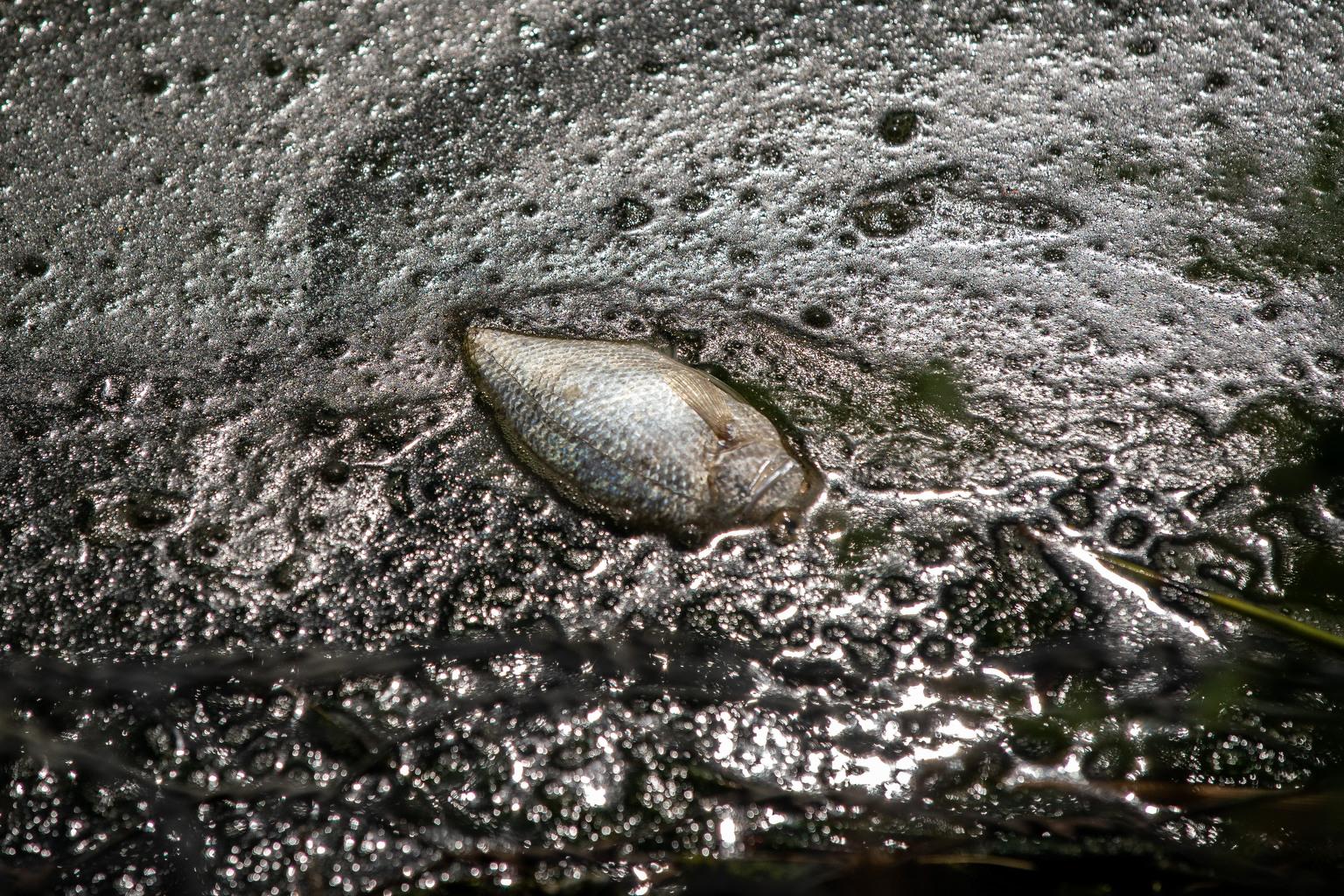Visitors to Sloan’s Lake — Denver’s premier destination for those who want to pretend they’re not living in a landlocked state — may witness, and perhaps smell, a disturbing sight this week: dozens, maybe even hundreds of dead fish floating on the lake’s surface.
The primary suspects: blue-green algae blooms and extreme heat.
Denver Parks and Recreation spokesperson Stephanie Figueroa said the extended period of hot weather has led to lower oxygen levels in the lake. That created ideal conditions for toxic algae to grow.
“We've seen, as of this morning, about 400 fish that our teams are out there cleaning up, and these are all fish that were naturally reproduced in the lake,” Figueroa told Denverite on Monday morning.
Sloan’s Lake’s shallowness makes it especially susceptible to deadly conditions. Much of the lake is no deeper than five feet, meaning it heats up faster than deeper bodies of water.
Hot temperatures are expected to last for the foreseeable future.
What is the city doing to clean up the fish and keep Denverites safe?
Park and public health officials will be on-site for at least a week to clean up dead fish as they float to the surface.
They’re also adding potable water to the lake in an attempt to keep levels high, Figueroa said.
Also, don't touch the water in the meantime. Blue-green algae can be poisonous to humans and pets.
This isn’t the first time Sloan’s Lake has seen mass fish deaths and toxic algae blooms.
Those who found comfort walking around Sloan’s Lake in the summer of 2020 during the height of COVID-19 precautions may experience déjà vu seeing this year’s fish kill.
That summer, algae blooms and hot summer temperatures combined to kill hundreds of fish.
And it isn’t just Sloan’s Lake. Cherry Creek Reservoir shut down sections of the lake to swimmers in 2023.
The year before that, and the year before that, officials put up warnings at Duck Lake at City Park against touching or ingesting the water there.
Increasing heat caused by climate change is something the department is paying attention to, Figueroa said.
“It is just something we're going to have to continue to look at, and it probably will only continue getting hotter,” she said.












